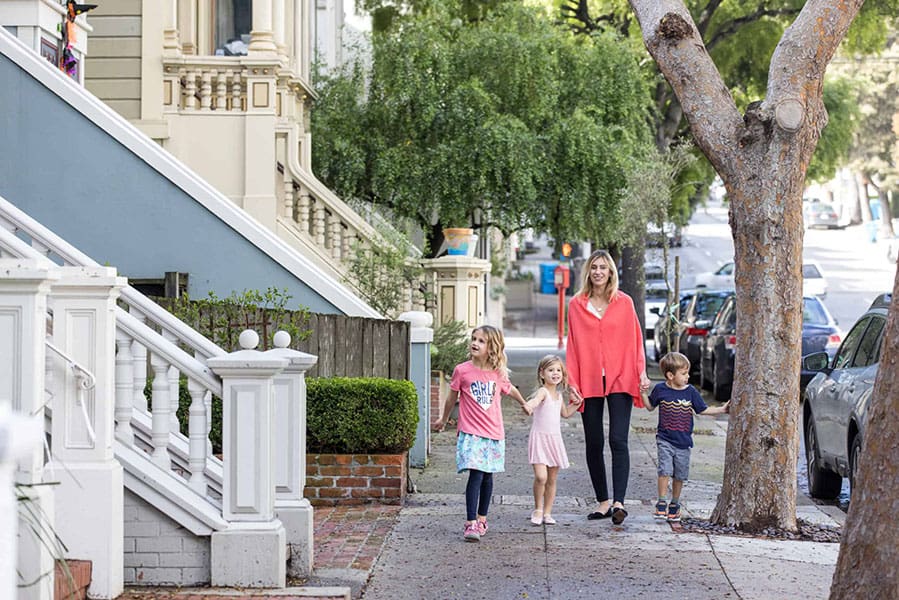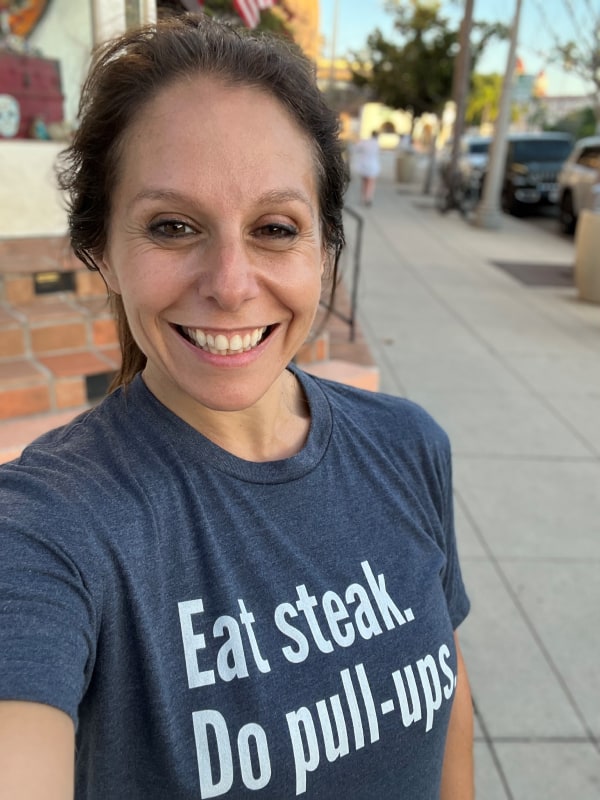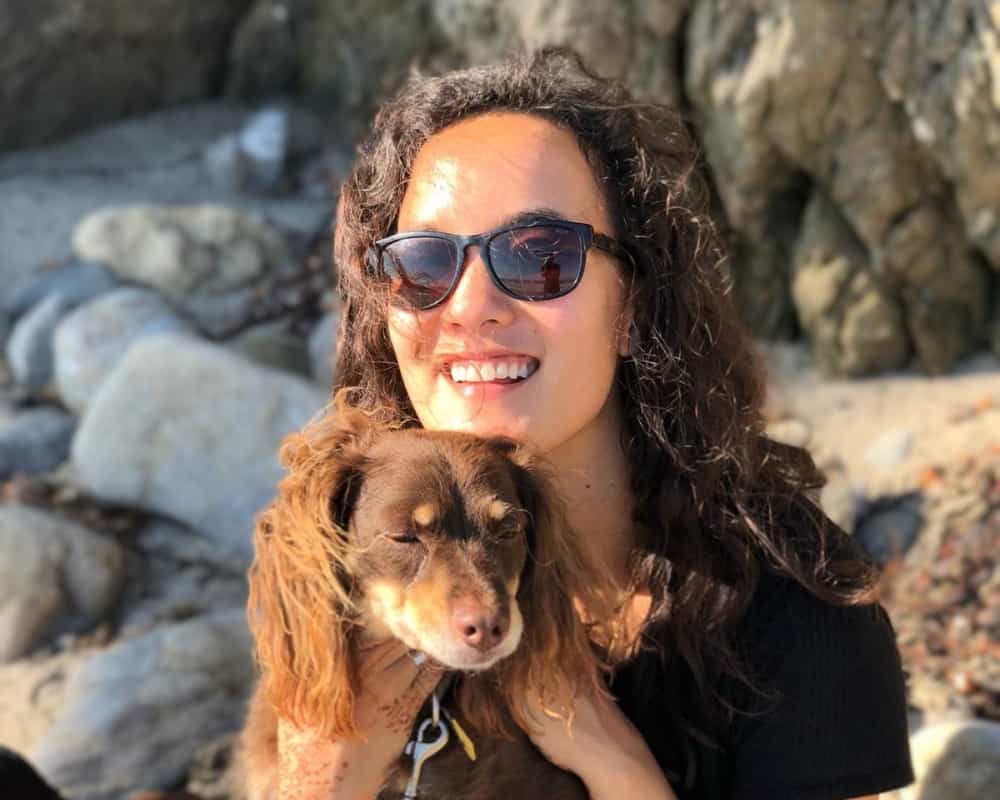Ulupreneur Claire Tomkins describes herself as an “unlikely candidate” for her current position as a healthtech founder and CEO at Future Family, a firm that helps make fertility care more accessible, personal, and affordable. Before this leap, she was headed down the career path of clean energy.
Born in the UK and raised in the Midwest, she did her graduate work at Stanford and earned a PhD in management science engineering. Her passion was the cleantech space, and she spent more than a decade working in the industry. She became a Kauffman Fellow, a premier venture capital education program, and thought she wanted to build a company with an innovative solution in the clean energy area.
During that time, she was trying to get pregnant and started fertility treatments. She underwent six rounds of IVF and described it as a deeply emotional, isolating, and very expensive experience. She felt she had lost control of an incredibly important dimension of her life—starting a family.
It was over dinner with her husband when she had her “aha” moment. They talked about how the fertility treatment system was such a broken process for what should be a beautiful and wonderful thing: starting a family. She thought, wouldn’t it be great if there were some kind of innovation to deal with these issues around the financial toll on families, as well as emotional support? This question proved to be the inspiration for creating Future Family. She tore up her old business plan, wrote a new one, asked some friends and family to put in money, found a CTO, and launched Future Family in 2017.
The company recently raised a $25M Series B and now has a $100M credit facility to ensure families can more easily plan for and navigate the costs of fertility services. We spoke to her about the roller-coaster ride through the pandemic and what it was like to come back from zero revenue. And most importantly, her family dream came true and she now has three children.
Why Future Family? Why now?
 We are arguably in a crisis around family building in the U.S. and I think it’s still being somewhat swept under the rug. We are experiencing the lowest birth rate of the last several decades. It has become really hard to start a family. More than half of women are having children in their 30s or starting to think about having a family in their 30s. That was never historically true. The tipping point occurred in 2016 when, for the first time ever, more women gave birth in their 30s and 40s than in the younger age groups. With that demographic shift, plus the rising cost of healthcare and the cost of good fertility care, it has become very difficult to start a family. There needs to be easy and affordable access to do that. We already estimated that about 20% of the population needs fertility services. That is a huge number; it’s a very large market.
We are arguably in a crisis around family building in the U.S. and I think it’s still being somewhat swept under the rug. We are experiencing the lowest birth rate of the last several decades. It has become really hard to start a family. More than half of women are having children in their 30s or starting to think about having a family in their 30s. That was never historically true. The tipping point occurred in 2016 when, for the first time ever, more women gave birth in their 30s and 40s than in the younger age groups. With that demographic shift, plus the rising cost of healthcare and the cost of good fertility care, it has become very difficult to start a family. There needs to be easy and affordable access to do that. We already estimated that about 20% of the population needs fertility services. That is a huge number; it’s a very large market.
What was your strategy around getting your first customers?
It was grassroots marketing tactics. I hosted wine and chocolates at my house and at a few other locations, just trying to talk to other women to validate—to tell them I went through this experience—and to ask them, “What are you looking for and how could you use a service like this?” We did a lot of outreach within my network of women in the Bay Area along with our grassroots marketing.
Tips to Founders for fundraising?
I jokingly compare fundraising to speed dating. Imagine what it’s like to go on 100 dates, and have them all go the same way. The first date is really great. They tell you that you’re amazing and beautiful; you’re so exciting. The second date is … ”Well, there’s a few questions I forgot to ask you.” And the third date is often them heading for the door. It’s a very psychologically tough process for any of us to go through. But it’s also all about finding that alignment with someone who wants to build this company with you. It’s really a partnership. And it’s being able to clearly articulate what you’re building, the value it will deliver, and how it will scale. You just have to have that North Star and trust that you’re going to find the right alignment.
What were the challenges?
Our deepest challenge was when the pandemic hit. There’s only three types of post-pandemic companies: first, the ones that aren’t here any more; second, the ones that were accelerated by the pandemic, like home hair care, dog food delivery, on demand TV—lots of things were accelerated. We were in the third category that was deeply hurt. Clinics closed down; elective health care was put on hold for a period of six-plus months at the outset of the pandemic. Our net new revenue went to zero. We had to raise bridge money and tell our investors that we knew people were going to want to build families once we got to the other side of the pandemic. I had investors who wouldn’t answer my call; investors who wouldn’t put in money. It was an incredibly taxing time for us. We survived, but not without some scar tissue.
Dreams for Future Family?
Our mission is to help everyone have the family of their dreams. Our work is not done until we feel like we can say, “Whatever family you want to build, we can help.” Whether you’re starting a family with a partner … we’ve helped lots of dads start families, we’ve helped women pursue single motherhood, and we’ve helped families facing secondary infertility. We want to remove the barriers to having children.




